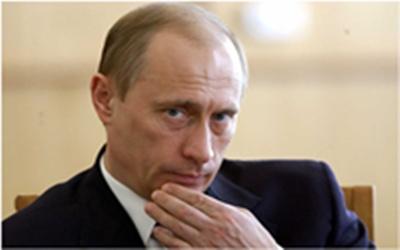Internet unravels Putin's 'control' of Chechen narrative

A new book by author Greg Simon charts the attempts by the Russian government to control the media narrative of its war in Chechnya. Mass Media and Modern Warfare: Reporting on the Russian War on Terrorism details how Russian censorship faces a new challenge in the form of the internet. Review by John Murray.
Since the time of Peter the Great, Russia has devoured anything useful it can lay its hands on from the West. It therefore comes as no surprise to learn that the Kremlin’s Chechen Briefing Centre, set up at the start of the Second Chechen War in 2000, was modelled on similar NATO operations, using techniques such as media tours staged to give a strong government view, and making available footage of Russian aerial bombings of the Chechen countryside à la Operation Desert Storm.
Anyone who has seen the pro-Kremlin news channel Russia Today will notice immediately how it has borrowed shamelessly from pro-US outfits such as CNN and Sky. And why shouldn’t it, your average Russian might well ask.
Putin, the man responsible for snatching Russia’s media back into the Kremlin’s hands after the so-called Golden Years of the early ’90s and the latter Yeltsin oligarch-dominated period, echoes the feelings of the ordinary Russian when he rails against the Western media’s refusal to report on Russia’s battle against the Chechens in the same way as it covers its own fight against terrorism.
‘In the same way as there could be no good or bad Nazis,’ Putin has said, ‘there cannot be good or bad terrorists. Double standards are simply unacceptable here; they are deadly dangerous for civilization.’
But before bemoaning the media ‘clampdown’ or ‘crackdown’ in Russia it is worth remembering that the Kremlin’s biased coverage of its battles with Chechens is broadly supported not only by most of the population, but by the bulk of Russian journalists, who are as happy to disseminate the Kremlin’s web of half-truths about Chechnya as BBC or ITV reporters are to peddle the NATO line on Afghanistan and Iraq.
In Simon’s words, under Putin the ‘gate-keeping became internalised’, as, indeed, it did in the Soviet period and as is the case in journalism the world over. Reporters understand, whether consciously or not, the parameters within which they can report.
Simons writes that the Russian ‘war on terror’ is all about ‘controlling the narrative’, and you do that by spinning the story in a way that suits you.
So, for example, it does not suit the Kremlin to describe Chechen separatists as ‘Islamic fundamentalists’ (as one faction in the republic is) because that runs the risk of setting off a separatist contagion among the country’s twenty million other Muslims, the majority of whom live not in the Caucasus, but along the Volga in Tatarstan and Bashkortostan.
Nor is it acceptable to call them, as the Western media routinely does, attackers, radicals, captors, fighters, commandos, insurgents, militants, rebels or separatists. Much better from the government’s point of view that the entire Chechen conflict be “folded into the Global War on Terror” and the Chechens, and others, be called, simply, ‘terrorists’.
The Kremlin may have won the internal mainstream media battle against Chechen separatists, but it has its work cut out chasing down and gagging the multitude of nomadic pro-Chechen websites pushing the various pro-Chechen agendas.
A sizeable chunk of Simon’s book deals with the Russian government’s relatively successful attempts to silence these websites by pressurising foreign governments where they are hosted to shut them down. But this is a Sisyphean task: no sooner have you shut down one site than another one pops up.
The internet, therefore, is beginning to level the playing pitch, giving all sides a chance to air their views, even if for the moment most pro-Chechen websites preach to the converted, as do the pro-Kremlin media. Nevertheless, the advent of the internet has changed everything, in Russia as elsewhere.
If you feel the mainstream media is lying or only giving one side of the story, then you can always check out an alternative source on the net. If people choose to keep themselves in the dark, that is their choice. In this new landscape it is becoming increasingly ridiculous to talk of the media in Russia, or anywhere else, as being ‘controlled by the government.’
Simons quotes Herman and Chomsky’s 1998 propaganda model, which suggests that the ideology of anti-terrorism, which has replaced the post-Cold War void, is cynically used by repressive governments to narrow media debate to a fight between goodies and baddies, thereby softening the public up so that they can then take repressive measures against dissenting voices.
This may well be so, but in Russia’s case, this analysis might be too subtle. Rather the state has always thought it should control the press, and that’s that.
Simons’ book is full of intelligent comment and insight and is well worth reading to get a picture of how the media works in Russia today. The pity is that it is littered with so many punctuation mistakes.
John Murray is lecturer at the Department of Russian and Slavonic Studies, Trinity College, Dublin.
'Mass Media and Modern Warfare: Reporting on the Russian War on Terrorism' by Greg Simons
Ashgate, 2010
pp. 207
